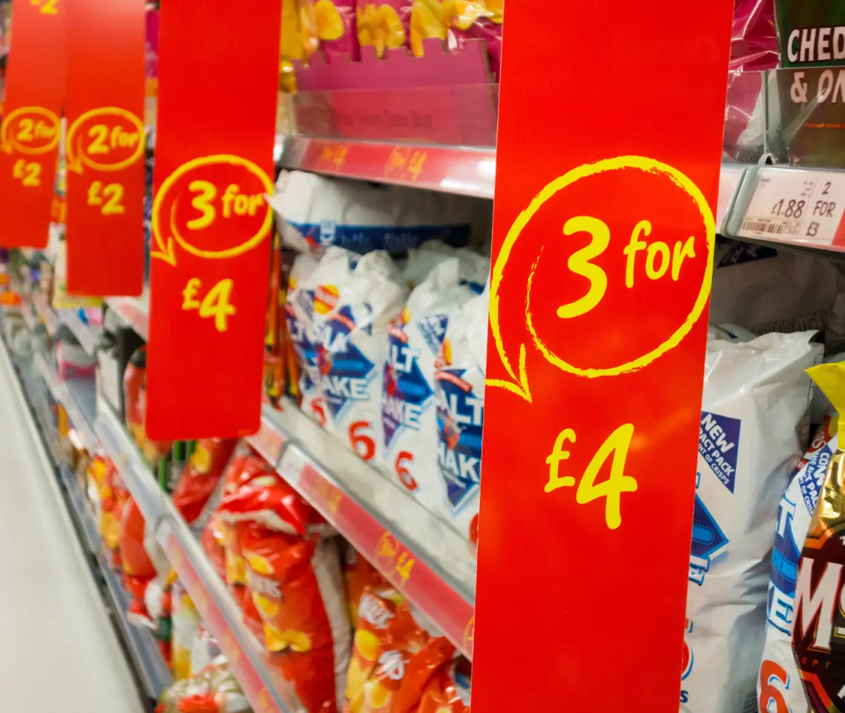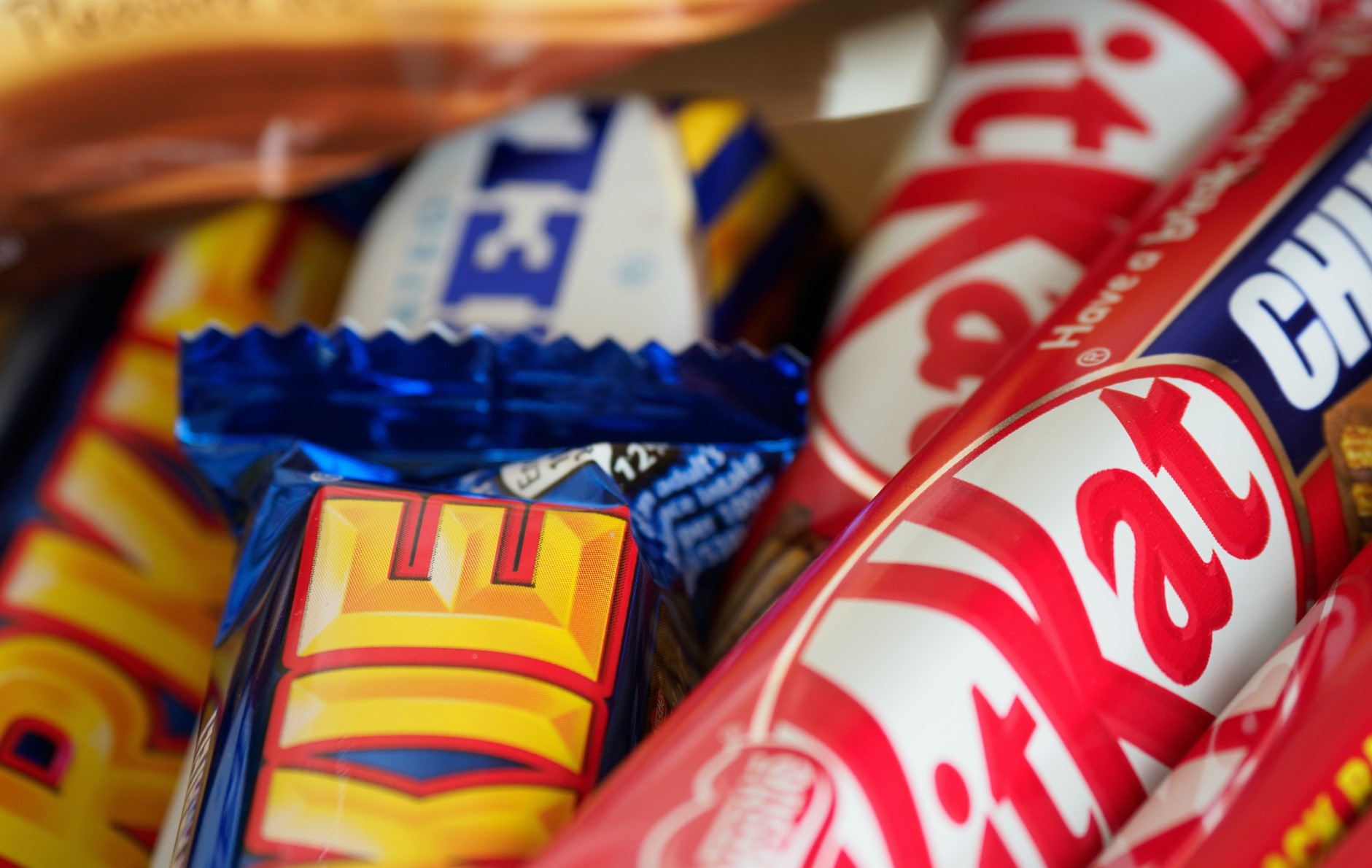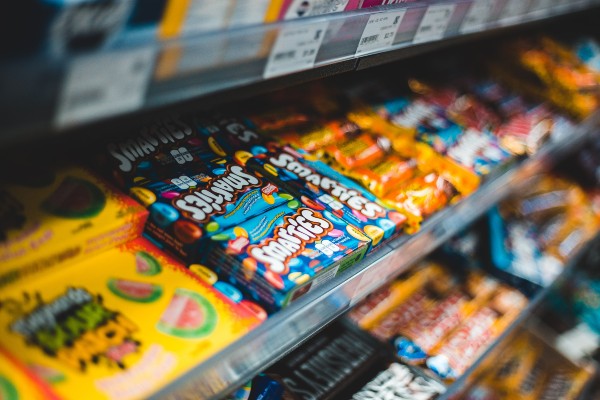April 28, 2022 Industry news
While the physical changes we will soon see in store have dominated much of the conversation so far, the new restrictions will also have a significant impact on the digital marketing and advertising of HFSS products.

What is HFSS?
HFSS refers to food and drink products that are high in (saturated) fat, salt or sugar according to the Department of Health’s Nutrient Profiling Model (NPM) which is used to calculate a products Nutrient Profile Score (NPS). Any foods that score four or more, and drinks with a score higher than one, are classed as HFSS.
From 1 October, all HFSS products will be removed from prime locations in stores and volume promotions such as buy-one, get-one-free will be banned. Major restrictions on digital marketing and advertising will also come into effect from 1 January 2023.
Not all HFSS product ads will be banned. Instead, the Government has narrowed down the scope of the ban to a revised list of categories in order to focus on those most likely to appeal to children.
Advertising restrictions
In terms of the advertising or media in scope, the ban extends to all paid-for advertising online. This includes:
- Listings on price comparison and food delivery sites
- Display advertising, such as banners or swipe-to-buy
- Video advertising, such as those presented before or during content on sites such as YouTube or pops-ups
- In-feed social media advertising
- Search listings and sponsored links on search engines
- Influencer marketing
- In-game advertising
- Newsletter advertising
- Widgets and sidebar adverts
- Advertorials
- Product-specific sponsorships

However not all online advertising will be banned. The above restrictions only apply to paid-for ads, meaning that non-paid for marketing across brands’ own channels will only be restricted by location.
Brand advertising will still be permitted provided it does not include identifiable HFSS products.
Audio only media such as podcasts and digital radio will not be covered by the legislation and businesses with fewer than 250 employees will still be allowed to advertise HFSS products they produce or sell.
Location restrictions
As covered in the previous section, while non-paid for marketing does not fall within the scope of the legislation, there will be strict restrictions on where HFSS foods can appear across owned channels online. Just as these products will be banned from aisle ends, check outs and other “prime locations” in stores, online they will be prohibited from appearing on:
- The homepage of a website: any image of a HFSS food that a consumer could add to their order via an ‘add to basket’ icon will no-longer be permitted. This would be viewed as placing the product in a “prime location,” as would be the case of items being placed in the entrance area of a physical store.
- In searches or results for non HFSS products
- In searches or results for HFSS products that fall within another of the thirteen categories currently covered by the legislation. For example, promotions for biscuits could not appear while a consumer is browsing results for cakes.
- In pop-ups or brand bursts: broadly speaking, the promotion of HFSS products on any page that was not opened intentionally by a consumer will be banned.
- On a ‘favourite products’ page: HFSS products will also be banned from ‘recommended for you’ pages unless the consumer has previously purchased the specified product (whether in store or online) or intentionally identified it as a favourite. Even then, any product that has purchased previously or identified as a “favourite” cannot be made bigger, ‘flashier’ or given special prominence in other ways over any other product on that page.
- All checkout pages, basket pages, or any pages a consumer views while proceeding to payment. If a ‘favourites’ page is part of the checkout process, the ‘favourites’ page restrictions will apply to this page.
As well as the above restrictions on the location of online promotions, all volume promotions on HFSS products will also be banned online.

Get HFSS ready
GS1 UK has joined forces with the UK retail industry to launch a HFSS solution as an extension to our productDNA platform. The offering is free to all suppliers and manufacturers, enabling a common approach for the capture and sharing of quality data to support compliance with the new legislation.
Using an industry-agreed set of data attributes underpinned by GS1 standards, productDNA for HFSS enables brands to effectively manage all of their HFSS data, making it simple and easy to enrich and amend product information and ensure compliance.

Sign up for productDNA HFSS
Our free solution allows suppliers to easily manage and share their HFSS product data with enriched attributes built on GS1 industry standards for consistency across all retail channels.

How the industry is solving the HFSS dilemma
Hear insights on how the industry has come together to create a standardised solution for adapting to new legislation.

HFSS: your questions answered
See answers to some of the most popular questions from our HFSS webinar series.
